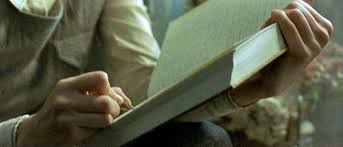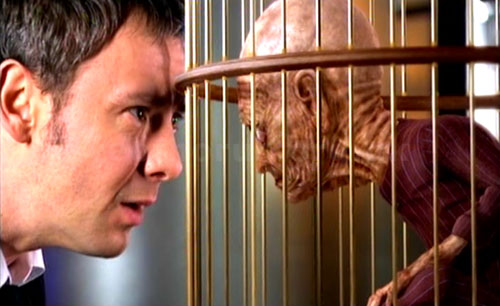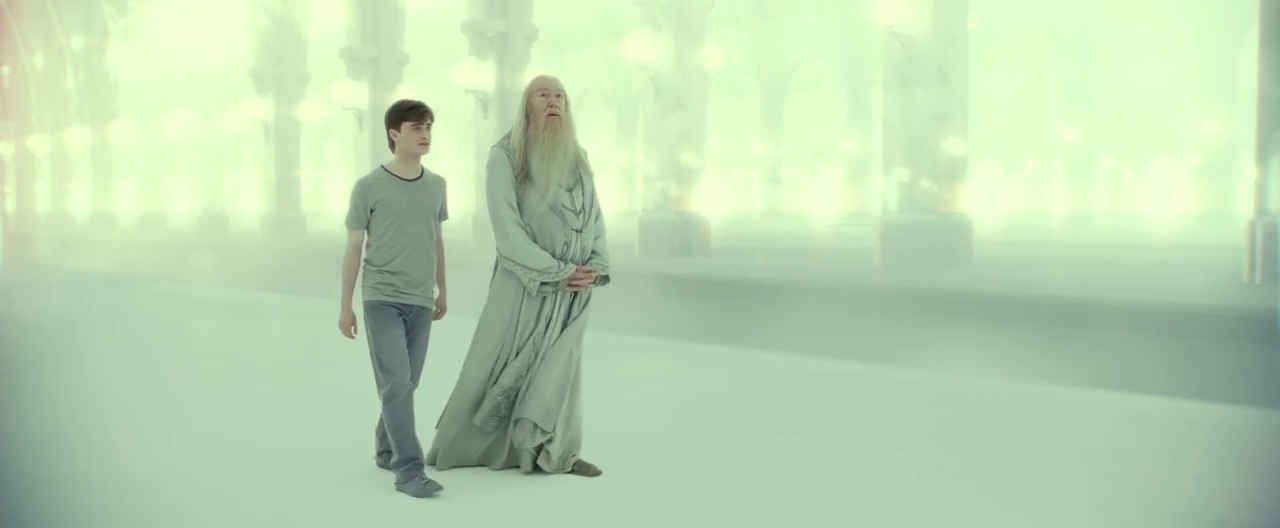 |
| Cassandra Mortmain writing in the 2003 film version of I Capture the Castle. |
Last week, the weekly quote was from E. B. White who wisely said, "a writer who waits for ideal conditions under which to work will die without putting a word on paper." The bare essentials to writing are a means of conveying words (paper, pen, keyboard) and a committment to fleshing out those words. It doesn't matter where it happens and under what conditions. Just that it happens. "Ideal conditions" are a myth.
Stephen King wrote his stories as a full-time high school English teacher, staying up through the odd hours of the morning. J. K. Rowling created Harry Potter and Hogwarts in cafes, taking care of her infant daughter. Stories are written on trains, on planes, on the road; in libraries, and in the back of lecture halls. Art springs up anywhere, and thrives on adverse situations.
 |
| Anne Frank hard at work in 1941, before the Annex. |
I was an avid grade-school reader when I discovered Anne Frank's diary at the local used book store and read her for the first time. She is one of the reasons I was first motivated to put pen to paper and seeing what I could with the words in my head. She had a strong narrative voice, a bit sassy, but vigorous in ways i myself wasn't. I related to her because we were the same age, because she was entering into confusing teenage years, and because she was honest about what she recorded in her diary. She was (and is) more articulate than my friends and I were at that age, which intrigued me.
Anne is the champion of writing in adverse conditions. Not merely because she and her family were hiding from the Gestapo, but logistics as well. She had to share a room with the cranky, middle-aged Dr. Pfeffer (called Dussel in the published version of the diary) who monopolized the writing desk and didn't take her school work, her love of languages, history and stories seriously. He wasn't the only one, and Anne (as a cornered teenager will naturally do) referred to herself as the misunderstood "Benjamin of the Annex." This did not stop her from writing. In fact, the diary is just one product of Anne's creativity during her time in the Annex; she wrote fairy tales and novel all while being shooed from one end of the apartment to the other, hiding in the attic, fighting horrible depression and the fear of death. It makes my excuses of not wanting to get up early and write look awfully petty. Anne had little space to work in, cheap (black market) exercise books to use and a plethora of daily interruptions, and she continued to write using what she had, using the time that was given her.
On 13 July 1943 Anne relates an incident with Mr. Pfeffer/Mr. Dussel over a matter of "the best little table."
Yesterday afternoon Father gave me permission to ask Mr. Dussel whether he would please be so good as to allow me (see how polite I am?) to use the table in our room two afternoons a week, from four to five-thirty. I already sit there every day from two-thirty to four while Dussel takes a nap, but the rest of the time the room and the table are off-limits to me. It's impossible to study next door in the afternoon, because there's too much going on. Besides, Father sometimes likes to sit at the desk during the afternoon.
So it seemed like a reasonable request, and I asked Dussel very politely. What do you think the learned gentleman's reply was? "No." Just plain "No!"
I was incensed and wasn't about to let myself be put off like that. I asked him the reason for his "No", but this didn't get me anywhere. The gist of his reply was: "I have to study, too, you know, and if I can't do that in the afternoons, I won't be able to fit it in at all... Mythology - what kind of work is that? Reading and knitting don't count, either. I use that table and I'm not going to give it up... You're not the only one who can't find a quiet place to work. You're always looking for a fight. If your sister Margot, who has more right to work space than you do, had to come to me with this request, I'd never even have thought of refusing..."
5 April 1944: epiphany and determination
I finally realized that I must [emphasis Jillian's]
do my schoolwork to keep from being ignorant, to get on in life, to become a journalist, because that's what I want! I know I can write. I few of my stories are good, my descriptions of the Secret Annex are humorous, much of diary is vivid and alive, but... it remains to be seen whether I really have talent.
11 April 1944: A break-in
"We should hide radio!' moaned Mrs. Van D.
"Sure, in the stove," answered Mr. Van D. "If they find us, they might as well find the radio!"
"Then they'll find Anne's diary," added Father.
"So burn it," suggested the most terrified of the group.
This and the police rattling on the bookcase were the moments when I was most afraid. Oh, not my diary; if my diary goes, I go too!
 |
| Anne Frank: knew from an early age to be serious about her craft, especially in adversity. |
Another recent quote I shared was from I Capture the Castle. Dodie Smith's novel opens with Cassandra Mortmain beginning her first notebook:
I write this sitting in the kitchen sink. That is, my feet are in it; the rest of me is on the draining-board, which I have padded with our dog's blanket and a tea cozy... I found that sitting in a place where you have never sat before can be inspiring. I wrote my very best poem sitting on the henhouse.
Cassandra lives with her family in a dilapidated castle in humiliating and hilarious poverty in the late 30s. She has the right idea: try new scenes, new places. Living in the castle she writes in the attic, in the towers, on the hillsides... romantic setting, inspiring vistas, and while she is uncomfortable, hungry and never quite satisfied, she finds ways to find beauty and humor in everyday life. And yet, she comes up with clever solutions - not necessarily to fix the problems she has with her writing environment but to use the resources that are available to her. She knows she will be interrupted, cold or miserable but she writes anyway and doesn't complain about it. I have learned a lot from her charisma.
 |
| Cassandra writes in bed, while sister Rose talks. |
Places Cassandra writes:
- kitchen sink
- kitchen table
- attic
- in bed
- tower
- father's desk in the gatehouse
- the mound
p. 24: writing by candlelight
I wonder if I can get a few more minutes' light by making wicks of match sticks stuck into the liquid wax. Sometimes that will work.
It was no good - like trying to write by the light of a glow-worm. But the moon has fought its way through the clouds at last and I can see by that. It is rather exciting to write by moonlight.
p. 26
I don't intend to let myself become the kind of writer who can only write in seclusion - after all, Jane Austen wrote in the sitting-room and merely covered up her work when a visitor called (though I bet she thought a thing or two) - but I am not quite Jane Austen yet and there are limits to what I can stand.... it is extremely cold up here, but I am wearing my coat and my wool gloves, which have gradually become mittens all but one thumb; and Ab, our beautiful pale ginger cat is keeping my stomach warm - I am leaning over him to write on the top of the cistern.
p. 187
This is the first time I have used the beautiful manuscript book Simon gave me - and the fountain pen which came from him yesterday. A scarlet pen and a blue and gold leather-bound book - what could be more inspiring? But I seemed to get on better with a stump of pencil and Stephen's fat, shilling exercise book.
Cassandra is also a queen of creative solutions and executes them determinedly. She and younger brother Thomas attempt to break their writer father's creative block by imprisoning him in the old tower behind the castle. The siblings know their father must write again to save his spirit.
p. 314
I felt dreadful, but Thomas seemed quite unconcerned. He hauled up the basket father had filled, took out the plates and dishes, and put the dinner in. I think he knew I was weakening, because he whispered: "we've got to go through with it now. You leave it to me." Then he lowered the basket and called down firmly:
"We'll let you out just as soon as you've written something - say fifty pages."
"I could never write fifty pages in less than three months even when I could write," said father, his voice cracking worse than ever. Then he flopped into the arm-chair and gripped his head wth his hands.
"Just unpack your dinner, will you?" said Thomas. "You'd better take the coffee pot out first."
Father looked up and his whole face went suddenly scarlet. Then he made a dive at the dinner basket, and the next second a plate flew past my head. A fork whizzed through the door just before we got it closed. Then we heard crockery breaking against it.
I sat down on the steps and burst into tears... "Please, please don't throw all your dinner dishes until you've eaten what's on them. Oh, won't you just try to write, father? Write anything - write 'The cat sat on the mat' if you like. Anything, as long as you write!"
How does Mr. Mortmain begin his long awaited novel? THE CAT SAT ON THE MAT.
Lastly: Stephen King, whose memoir on writing has been a tremendous help to me, writes about his dream desk:
For years, I dreamed of having the sort of massive oak slab that would dominate a room - no more child's desk in a trailer laundry-closet, no more cramped kneehole in a rented house. In 1981 I got the one I wanted and placed it in the middle of a spacious, skylighted study... For six years I sat behind that desk either drunk or wrecked out of my mind, like a ship's captain in charge of a voyage to nowhere... A year or two after I sobered up, I got rid of that monstrosity... I got another desk - it's handmade, beautiful and half the size of the T. rex desk. I put it at the far west end of the office, in a corner under the eave. That eave is very much like the one I slept under in Durham [his childhood home]...
Put your desk in the corner, and every time you sit down there to write, remind yourself why it isn't in the middle of the room. Life isn't a support system for art. It's the other way around.
I was a teenager in the tiniest bedroom of the house and wrote a long, long sci-fi epic (alas unpublishable), four years of high school papers and massive journals. I didn't hate my room, but it wasn't the best environment. Until I was presented with a large wooden writing desk at age twelve, I perched on the edge of my bed and wrote my pages, front and back, on a piece of old foam board. I did what I could to make the room better: plastering the walls with inspirations and rearranging my furniture every few months (not an easy feat when the bed takes up roughly a third of the room). But I was happy. I got things done. I forced myself out of my room and into my characters' lives, and that was gold. These days I try to put myself in this mentality in my current situation, even if I'm not completely satisfied. I still use my old desk and don't necessarily love it, but it has loyally traveled with me to college, to my first post-college apartment, and is under my computer as I write this post in my current home.
Writers thrive under less than ideal circumstance: in the rickety chair, at the tilting kitchen table, in the barn, in a room filled with noisy people, with a cat constantly jumping up in one's lap and walking across the desk. These conditions flavor us and build up our carapace. The world is our office. Waiting for ideal conditions is simply an excuse not to write, even though - as proved by the sheer fact of our creative drive - we have the tools to make these conditions useful. Granted, we're a stubborn bunch, but how awesome is it to say, "Yes, I shall write today even if this coffee shop is noisy and the coffee bitter, even if the cat jumps all over me and the dog whines on the other side of my door, even if that awesome television show is calling to me like a Siren."
I've been pondering the phraseology of "full-time writer." What is a full-time writer, anyway? Well, you say (wondering if I've asked a trick question), it's someone who is fortunate to be able to write for a living by freelancing, writing stories, publishing novels. Yes, a typical day in the life of a full-timer looks like heaven to us office-job-or-otherwise people. But I don't "qualify" to have the "full-time" sticker next to my name simply because it isn't how I earn my bread? Silly.
Writing is so much more than something to fill in those hours here at work. Writing is a lifestyle, an attitude. Courage and grace under fire! It gets me out of bed and enables me to interact better with the world. Nor does a writer ever really have the day off. We're constantly processing, moving through our stories (if you open mail like I do, this is an ideal brain-time). "Ideal" would be a place to myself, where I'm free from interruptions (no phones or walk-ins); but do I need ideal? And is it really a solution or a distracting dream?
If you're fortunate enough to have a job where you can write in spurts as you work, take advantage of it... albeit discreetly. Get up early in the morning because your story means something to you. Netflix and Redbox are not adverse conditions; they're choices. Having trouble connecting to your story? Try writing it by hand. Don't like your handwriting? There are ways you can improve it. How much are you feeding your artist-child? Read! Take creative outings! Go on quiet walks! And give yourself more credit for weathering the storm!
Someday we might have that dream office or the quiet house, but until then, embrace the place in which you're writing now. It's helping you more than you might think.
Happy writing!












![[hulk-from-the-movie.jpg]](https://blogger.googleusercontent.com/img/b/R29vZ2xl/AVvXsEjrQTNstR-20ezTmtqEh-qVO7Qhq5byHCDBs4oKPB9_k2iAv81y0f7KBgPD4bXAykbFkOJbWdjB3Vti9dl97KniLsfwzYW9vTLfwKtNGBizdH8dTqJJAZXXPS1zGICYg52LiT5eSTDiFQU/s200/hulk-from-the-movie.jpg)


